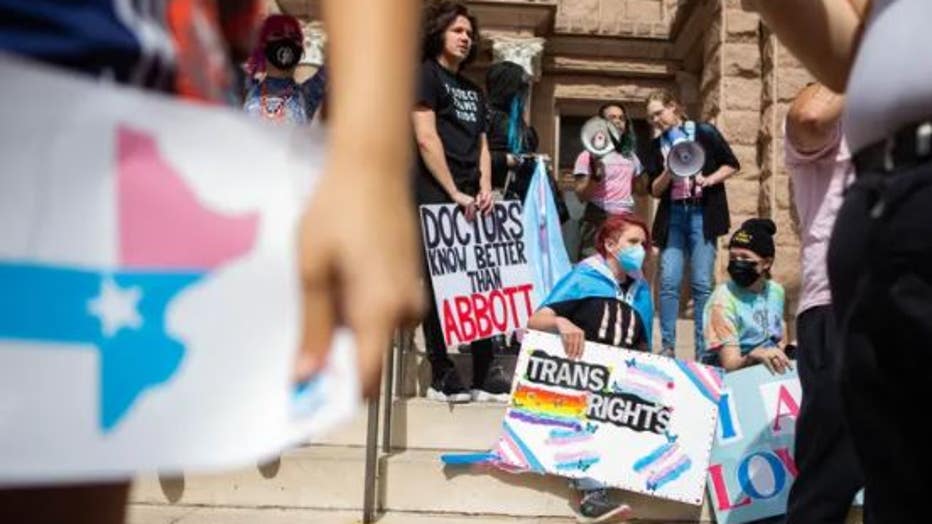Texas Supreme Court hears arguments for ban on gender-affirming care for kids
Supreme Court hears arguments on Senate Bill 14
In September, Senate Bill 14 went into effect, banning transgender minors from accessing treatments like hormone therapy and puberty blockers among other treatments. A group of parents, physicians and special-interest groups sued the state, claiming the law violates the constitutional rights of families and children based on sex.
The Texas Supreme Court heard arguments Tuesday about the state's ban on gender-affirming care in minors.
The families and groups that sued the state argue the new law violates the constitutional rights of families and transgender children.
"What Senate Bill 14 does is it takes certain medical treatments off the table entirely," said Natalie Thompson with the Office of the Attorney General.
In September, Senate Bill 14 went into effect, banning transgender minors from accessing treatments like hormone therapy and puberty blockers among other treatments.
"It deprives transgender youth of equal rights," said Kennon Wooten, attorney for the appellees.

Demonstrators held signs in front of the Texas Capitol on Tuesday during a protest for transgender kids’ rights. Credit: Lauren Witte/The Texas Tribune
A group of parents, physicians and special-interest groups sued the state, claiming the law violates the constitutional rights of families and children based on sex.
A Travis County judge temporarily blocked the law, but the Texas Supreme Court allowed it to go into effect anyway. Now, justices must decide whether the law should stay in effect.
"This is a parent’s choice. The fundamental right to decide," Wooten said.
Featured
Judge blocks Texas ban on gender-affirming medical care for trans minors, state expected to appeal
A group of families and doctors sued to block the Texas law, arguing it would violate parents’ rights and have devastating consequences for transgender children.
Wooten argues that transgender children need the types of care Senate Bill 14 blocks.
"The state’s coming into the living room of parents and making decisions about care, and that’s the problem," she said.
However, the state questions the credibility of studies that support gender-affirming care.
"The evidence to support these interventions is questionable at best," Thompson said.
Among the medical organizations that support the standard of care are the American Academy of Pediatrics and the American Medical Association.
But the state argues the care can be detrimental to kids.
Texas House Republicans pass bill banning gender-affirming care for minors
Democrats twice successfully delayed a vote on the bill in the House for technical reasons, but they were unsuccessful Friday night.
"Even if we put aside the uncertainty about the benefits of these decisions, we’re talking about 8 and 9-year-old children never going through puberty and being rendered sterile because of these hormone procedures," Thompson said.
Tuesday’s hearing lasted about an hour. Justices posed questions and perspectives.
"It seems to me that what the court is really asked to do is resolve what is, at bottom, a moral and philosophical question as opposed to a scientific question about the nature of men and women," said Justice Jimmy Blacklock. "What is gender identity? Is it even a coherent concept?"
The Texas Supreme Court will issue an opinion on Senate Bill 14 by June 30.


